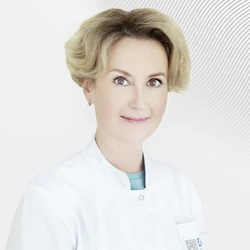Endocrine organs are endocrine organs that secrete substances called hormones.
 Any disorders related to the endocrine system can negatively affect the entire human body. That is why it is so important to identify and treat such diseases in time. About the treatment of diseases of the endocrine system in an article for the Internet portal Doctor.ru says a nutritionist, an endocrinologist at the European Medical Center, a doctor of the highest category Irina Russ.
Any disorders related to the endocrine system can negatively affect the entire human body. That is why it is so important to identify and treat such diseases in time. About the treatment of diseases of the endocrine system in an article for the Internet portal Doctor.ru says a nutritionist, an endocrinologist at the European Medical Center, a doctor of the highest category Irina Russ.
The most common endocrinological diseases are diseases of the thyroid and pancreas. In addition, it has been proven that adipose tissue (fat) is part of the endocrine system, so obesity is also considered an endocrinological disease.
Thyroid diseases and their treatment
The thyroid gland is an organ in which iodine accumulates and iodine–containing hormones are produced. Normally, its size in women is up to 18 cm3, in men – no more than 25 cm3. Thyroid diseases can be associated with functional disorders (euthyroidism – normal hormone levels, hypothyroidism – insufficient hormones, hyperthyroidism – excess hormones), as well as changes in the structure and size of the gland, which are classified as follows:
-
diffuse goiter is an enlargement of the thyroid gland,
-
nodules - neoplasms (benign or malignant),
-
chronic autoimmune thyroiditis is a disease in which the immune system reacts to the thyroid gland as an alien biological structure.
All thyroid diseases should be treated under strict medical supervision!
What types of treatment are usually used:
-
Diffuse goiter - iodine medications or thyroid hormones. The decision on which drug to prescribe in each specific case can only be made by a doctor, and treatment should be carried out with routine monitoring of blood tests and ultrasound.
-
Nodes. Up to one centimeter in diameter – monitoring the condition of the node and an iodized diet. If the nodes are more than a centimeter with a tendency to increase, then, first of all, it is necessary to exclude the tumor process. In the absence of cancer data, the node is monitored and a diet is also prescribed. If cancer cells are detected, the node is removed, and if there are several nodes, the entire gland is removed. In the latter case, the patient is prescribed lifelong hormone therapy – taking thyroid hormones, which are designed to replace the functions of the missing organ.
-
Chronic autoimmune thyroiditis. With an enlarged thyroid gland, hormone treatment is prescribed, even with normal hormone levels. In case of hypothyroidism, lifelong hormone intake is prescribed. If hyperthyroidism is diagnosed, then a cycle of treatment with thyrostatics is carried out – drugs that suppress the thyroid gland. However, when treated with thyrostatics, patients may experience relapses of the disease, which is why treatment with radioactive iodine is becoming increasingly popular in Russia. This is a fairly effective, gentle technique, after which complications are minimal. In rare cases of hyperthyroidism, removal of the thyroid gland is indicated, followed by lifelong hormone replacement therapy.
Pancreatic diseases and their treatment
The pancreas is an organ that produces digestive enzymes, as well as the hormone insulin, responsible for the normal metabolism of glucose in the body. If there is no or insufficient amount of insulin, a disease called diabetes mellitus develops. Diabetes mellitus is distinguished between the first (lack of its own insulin) and the second (insulin does not bind to glucose) types.
Treatment of type 1 diabetes mellitus consists in constant control of blood sugar levels and maintenance of normal blood insulin levels by four to five injections of an insulin preparation per day.
For patients suffering from the second type of diabetes, medication with tablet drugs is more often indicated. Drugs that increase insulin levels or improve the binding of insulin to glucose are usually used. A healthy lifestyle and proper nutrition, selected together with a doctor, can significantly reduce the required dose of medications.
It must be remembered that diabetes mellitus is a chronic disease. At the same time, the patient should know how to properly measure the daily blood sugar level, eat right, and also be able to calculate the required dose of insulin. Only a doctor can help him with this. There are specialized "schools" for patients with diabetes.
Obesity and its treatment
Obesity is a condition in which a large amount of adipose tissue accumulates in the body. Today, it is customary to measure the degree of obesity using BMI (body mass index), but this is not an objective assessment. BMI is calculated from the ratio of weight and height, while other indicators are not taken into account. The most correct assessment of obesity is using a bioimpedance measurement device that examines body composition. One of these devices is located at the European Medical Center in Moscow. After assessing the specific amount of adipose tissue, treatment is prescribed, which is well known to everyone – it is proper nutrition, physical activity and, if necessary, medications or dietary supplements. Many people tend to prescribe their own diets and even purchase weight-loss medications. As a rule, this is not only ineffective, but can also be dangerous. It is best to consult with a specialist who will help identify the causes of excess weight and select appropriate treatment.
For the normal functioning of the body, a certain balance of hormones is required, which can be disrupted due to many factors (for example, stress). Therefore, if necessary, you need to undergo an examination and consult with an endocrinologist, who will give the necessary recommendations to correct possible changes. It is very important to lead a healthy lifestyle, get enough sleep, eat right, exercise and do not forget about regular medical checkups. This is the only way to maintain good health for many years to come.






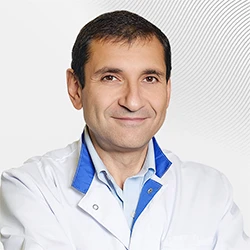

.webp)



.webp)

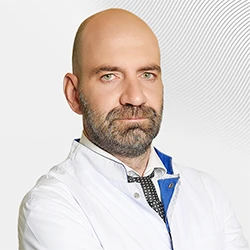
.webp)

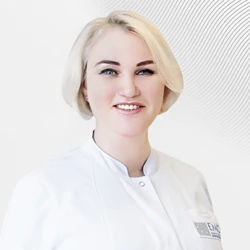
.webp)
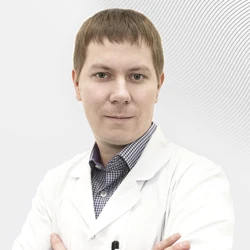
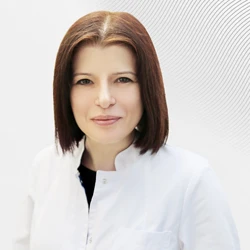
.webp)
.webp)

.webp)
